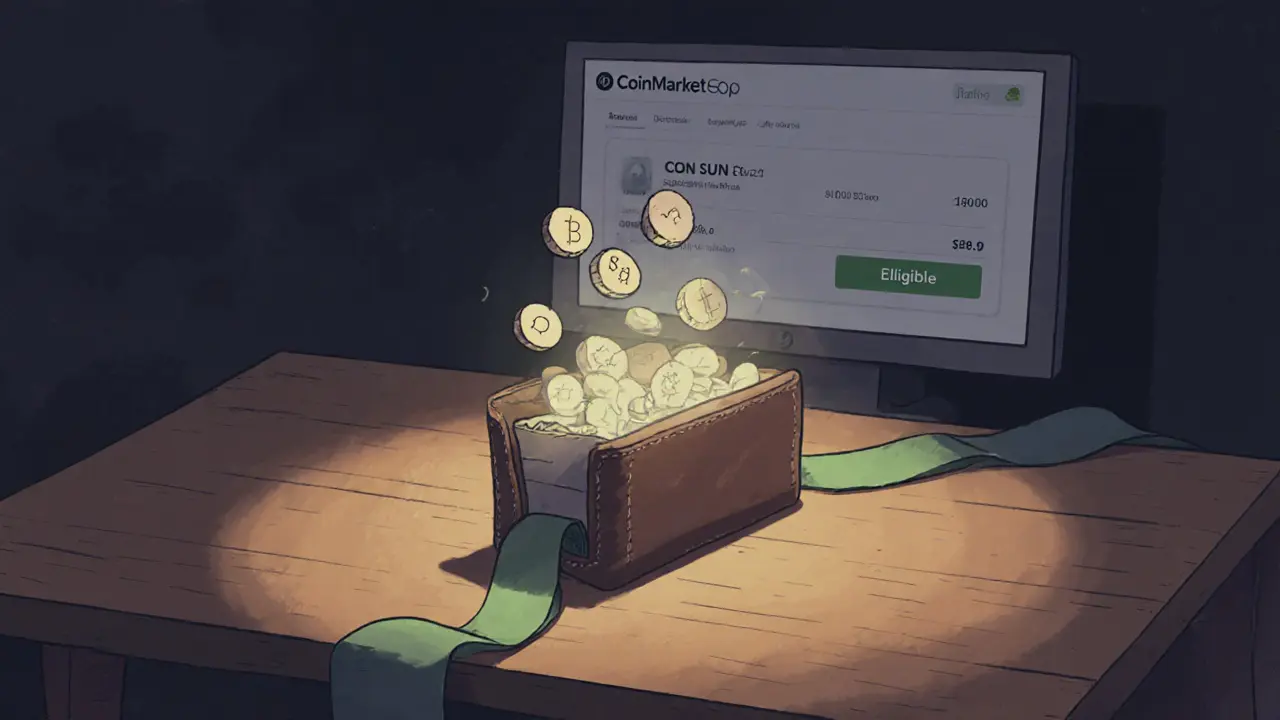Free Crypto Airdrop: How to Find Real Ones and Avoid Scams
When you hear free crypto airdrop, a distribution of cryptocurrency tokens to wallet holders, often for free, to grow a project’s user base. Also known as crypto token giveaway, it sounds too good to be true—because most of them are. Real airdrops happen when teams want to spread adoption, not steal your private keys. They don’t ask for your seed phrase. They don’t send you a link to claim tokens on a random website. They don’t require you to pay gas fees upfront. If it does, it’s a scam.
Legit crypto airdrop, a distribution method used by blockchain projects to reward early supporters and build community usually tie to real activity: holding a specific token, using a decentralized exchange, or joining a testnet. Projects like STON.fi and Gamestarter have used airdrops to reward users who actually traded or played their games—not just signed up. But look closer: CHIHUA airdrop, a fake token claim with no team, no contract, and zero trading, is a classic example of what to avoid. The same goes for fake $GAME airdrops. These aren’t mistakes—they’re designed to trick you into connecting your wallet and draining it.
Real airdrops show up in official channels: Twitter, Discord, or the project’s website. They list exact eligibility rules. They never rush you. They don’t use urgency like “Claim now or lose it!” That’s how scams work. You’ll find real ones in the details: audits, team transparency, and community size. If a project has no active users, no trading volume, and no roadmap, the airdrop is just a lure. Even if the token name sounds cool, if the project vanished after the drop, you’re holding digital trash.
Some airdrops are tied to blockchain airdrops, token distributions tied to specific networks like TON, Fantom, or Polkadot, often rewarding early adopters of the chain. For example, STON.fi v2 gave tokens to users who swapped on TON. That’s useful—it rewards real usage. But if you see a “free airdrop for Bitcoin holders” from a project that’s never touched Bitcoin? Red flag. Airdrops don’t work across unrelated chains unless there’s a real partnership.
You don’t need to chase every free token. Focus on ones that connect to platforms you already use. If you trade on TON, watch for STON.fi or TON-based drops. If you use DeFi, keep an eye on yield farming projects like those in the Kalata Protocol or Sphynx Labs—but only if they’re audited and active. Most airdrops fail. Only a few deliver value. The rest? They’re just digital bait.
Below, you’ll find real reviews of projects that did—or didn’t—deliver on their promises. Some airdrops turned into scams. Others vanished. A few still work. We cut through the noise so you don’t have to.
SUNI Campaign Airdrop: What You Need to Know Before Claiming SUNI Tokens
The SUNI airdrop offers 4,118 free tokens via CoinMarketCap, but the token has no market value, no utility, and no public project details. Learn what’s real, what’s risky, and whether you should claim it.
